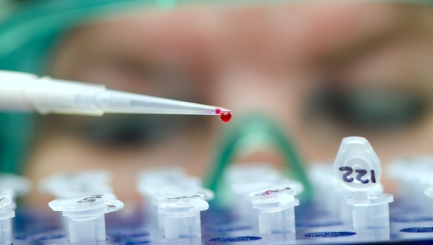Could A New Clinical Trial Lead To A Type 1 Diabetes Cure?
 Type 1 diabetes affects the wellbeing of roughly one in 250 people in the UK and the epidemic is on the rise, especially in young children. However, researchers at Cardiff University are taking part in a clinical trial to tackle the disease, using a new vaccine developed by Mark Peakman, professor of clinical immunology at King’s College London.
Type 1 diabetes affects the wellbeing of roughly one in 250 people in the UK and the epidemic is on the rise, especially in young children. However, researchers at Cardiff University are taking part in a clinical trial to tackle the disease, using a new vaccine developed by Mark Peakman, professor of clinical immunology at King’s College London.
Unlike type 2 diabetes, type 1 is not linked to your obesity or lifestyle, but scientists believe your genes play a role in the condition. When you have type 1 diabetes, your immune system attacks the cells in your pancreas that are responsible for making insulin. This means that when you are diagnosed with the disease, your wellness for the rest of your life depends on multiple injections of insulin every day, and you are at risk to other conditions.
However, researchers believe that the vaccine can slow or stop the disease’s development, and so are seeking recently-diagnosed adult volunteers to take part in the trial. According to the trial’s leader Colin Dayan, professor of clinical diabetes and metabolism at Cardiff, ‘We believe that this immune-based therapy can slow or stop the body from damaging its own insulin-making cells in the pancreas. Research to date shows that the treatment is safe but we are in the early days and need to learn more about how it works in people in newly diagnosed Type 1 diabetes. If effective, we can develop further treatments for individuals who are at risk of developing this type of diabetes later in life.’
Emma Parry, an outreach team leader for Llamau, is taking part in the trial. She says, ‘I’m generally a healthy and active 35-year-old, so you can imagine, being told that I have type 1 diabetes was a bit of shock to the system. I have a lot of unanswered questions about why people develop diabetes, is it inherited? Do you get it from a virus? Could it be environmental conditions or stress? I still don’t know why I developed diabetes, but thought my contribution in some small way, will help answer some of these questions for future generations.’
Dayan added, ‘Our ultimate hope is to find a cure for type 1 diabetes. We need to offer all people with diabetes the opportunity to participate in research. Information from the trial combined with further studies building on this could improve quality of life and long-term health and benefit for children and adults with type 1 diabetes and future generations.’


Comments are closed.